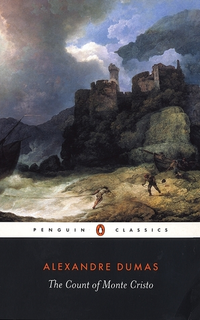Post
I grew up under the cultural bias that "Dumas was for middlebrows", not literary, hence one should quickly read "The Three Musqueteers" when still in puberty, followed by Dickens, then move on to "real" and "literary" novelists like Flaubert, Zola, or, perhaps Balzac, as a preparation for, some day, the Russians. Dumas reputation was not helped by a posthumous smear campaign that spread the rumor that Dumas used an entire workshop ("atelier") of ghostwriters, no doubt fed with the French wordplay around a racial connotation ("ghostwriter" has a double meaning in French).
So it was the most pleasant surprise that, during the lockdown of COVID-19, I accidentally got into this. Owing to the early developments around the pandemic, I could not easily concentrate on the usual material, so looking for a historical novel, I opened the book and could not stop. In spite of its length is built like a short (theater) play: there is not a single detail at any point that does'nt later on come to count in the resolution --and you know it instinctively so you do not miss anything. It moves very fast, but is... 1600 pages long (I read the French version).
I cannot vouch for this translation (as I said I read it in the original), but I have not read more absorbing novel written in the past 180 years.
Read old books.
